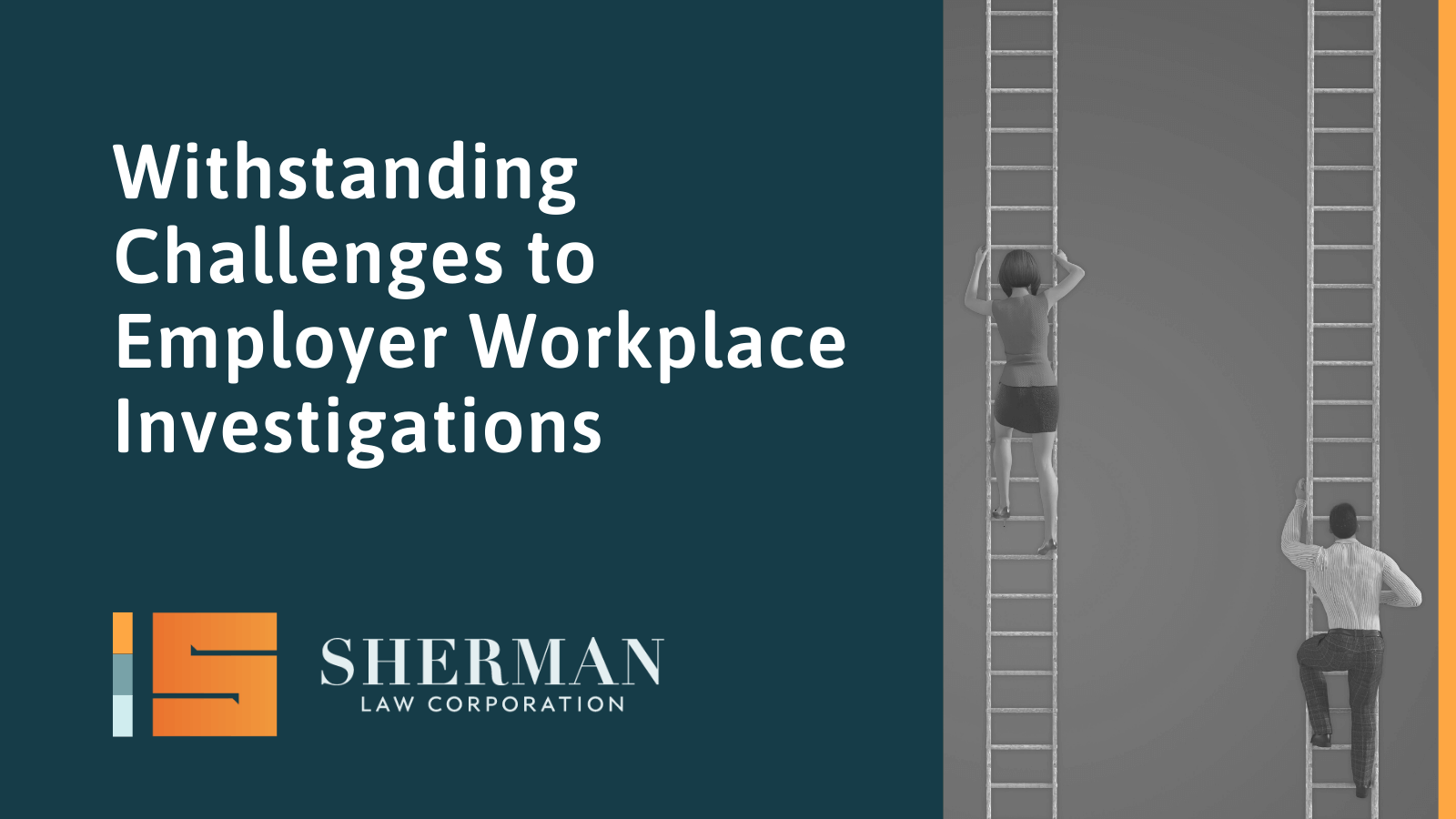
Workplace investigations are attacked on any number of the following grounds:
- Investigator is not qualified on employment laws and/or conducting legally compliant workplace investigations. Lesson: Retain an independent investigator who is an employment attorney trained in workplace investigations.
- Investigator is biased because of his/her involvement with the parties, issues and/or relationship with the employer. Lesson: Retain an independent investigator who is an employment attorney trained in workplace investigations with no affiliation whatsoever with the parties or issues. Set ground rules in advance, including whether the client will have input on the investigation and report editing, whether the report will be released, whether the client will receive a report in advance, and if so, how far in advance.
- Investigation was not promptly launched; Lesson: Immediately launch the investigation and document it;
- Scope of investigation not defined or goes beyond the issues; Lesson: Frame the question(s) at the outset and make them as narrow as possible. Report may need to call out obvious questions that are not addressed;
- Investigation did not keep the parties informed and moving quickly while taking all reasonable measures to maintain confidentiality only with persons with a need to know, Lesson: Investigation documentation documents communications with parties, admonitions at interviews, steps taken to maintain confidentiality to limited group, managing team members involved such that the file indicates the steps taken to move the investigation to a conclusion;
- Issues were not thoroughly investigated; Lesson: Document the investigation process and follow-up on disputed material issues;
- Investigation did not reach a conclusion or the conclusion is not supported by the evidence; Lesson: Investigation must reach a conclusion, even if there is insufficient evidence to substantiate the allegations. The basis of any findings must be logically and clearly explained in reports/documentation.
- Witness interviews evidenced intimidation, bias, improper assumptions and failure to record what was said accurately. Lesson: Establish a rapport with each witness, use techniques to confirm understanding, focus solely on developing facts, watch for red flags such as witnesses body language and responses.
- Report states information that is irrelevant, based on speculation, conjecture, bias, or beyond the scope of the investigation; the narrative lacks cohesiveness, fails to address limitations, gaps, assumptions made, documents requested but not provided, credibility findings are not essential or too subjective to be relied upon. Lesson: Write narrowly, use only material relevant facts necessary to answer questions and create a cohesive narrative, rigorous analysis of facts, stating all assumptions, gaps and limitations, avoid making credibility findings unless essential and based on the most objective factors, such as plausibility, independent corroboration from other witnesses or documents and whether there is a motive to falsify.




